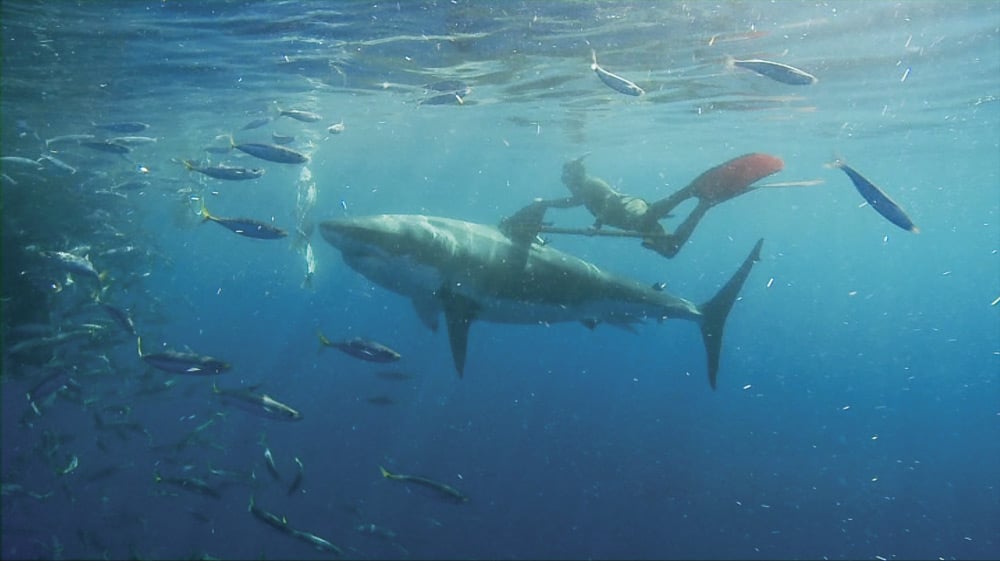Does research mean anything?
As a younger man I spent copious amounts of time in the middle east. Lebanon, Yemen, Somalia, Syria, Egypt, Palestine and with terrorists. Or at least what we here in the west define as “terrorists.” Hezbollah, Al-Aqsa Martyrs Brigade, Hamas, Al-Qaeda, The Muslim Brotherhood, etc. I drank tea, chatted, laughed, argued, disagreed and was once nabbed and thrown into a blood-stained dungeon then interrogated for almost ever.
Do I know what’s going on in the mind of a terrorist?
Fuck no.
Do Laird Hamilton and Mark Healey, who have spent copious amounts of time in the ocean and with sharks, know what’s going on in the mind of that predator?
Fuck no.
Their claim that menstruation leads to an uptick in shark attack because it kind of makes sense and/or they have seen sharks sniffing girls in the water has simply not been corroborated by any study whatsoever. Zero studies. None. And shall we read from a shark doctor on Broadly?
We asked Dr. Tricia Meredith, who literally wrote the book on the olfactory response of sharks. For her dissertation, she hooked sharks up to a device that introduced controlled amounts of prey odors (smells associated with a shark’s next meal) into a shark’s nose, then measured the electrical impulses in their nasal cavity. She weakened the concentration of these prey odors to determine how diffuse an odor a shark could still pick up. Dr. Meredith found that sharks can detect prey odors as minute as one part per billion—still superhuman, but not better than other fish with similar schnozzes. One part per billion is roughly the background scent level of the ocean. If a shark’s sense of smell was any better they would be flooded with stimulus, the olfactory equivalent of those people who can’t deal with the sound of chewing.
There is one sensory arena where sharks excel, but it isn’t smell. Sharks are incredibly electroreceptive, meaning they can detect teeny tiny electromagnetic fields in water. Sharks possess a science fiction-y and awesomely-named organ called the ampullae of Lorenzini, which are pores, located on the snout, that end in jelly-filled bulbs. These bulbs contain nerves that detect electric fields in the water as small as five millionths of a volt per centimeter. Sharks use the ampullae of Lorenzini to navigate the ocean and detect prey. All ocean-dwelling animals emit an electrical field: Muscle contractions release bioelectricity, and, as Dr. Kajiura says, “any animal in the ocean with a thin, leaky mucus membrane acts as a battery in seawater,” because of the differing pH levels inside and outside the animal. Dr. Kajiura was talking about gills, but “thin, leaky mucus membrane” could also double as the least sexy description of a vagina ever (and that’s including Martin Lawrence’s infamous SNL monologue).
So there you go. Maybe Laird and Healey are right. Maybe they have some kind of sixth sense born of time spent in the ocean and know what sharks are really thinking. Maybe the right study hasn’t been conducted yet.
And maybe I’ll be able to predict ISIS’s next move.







